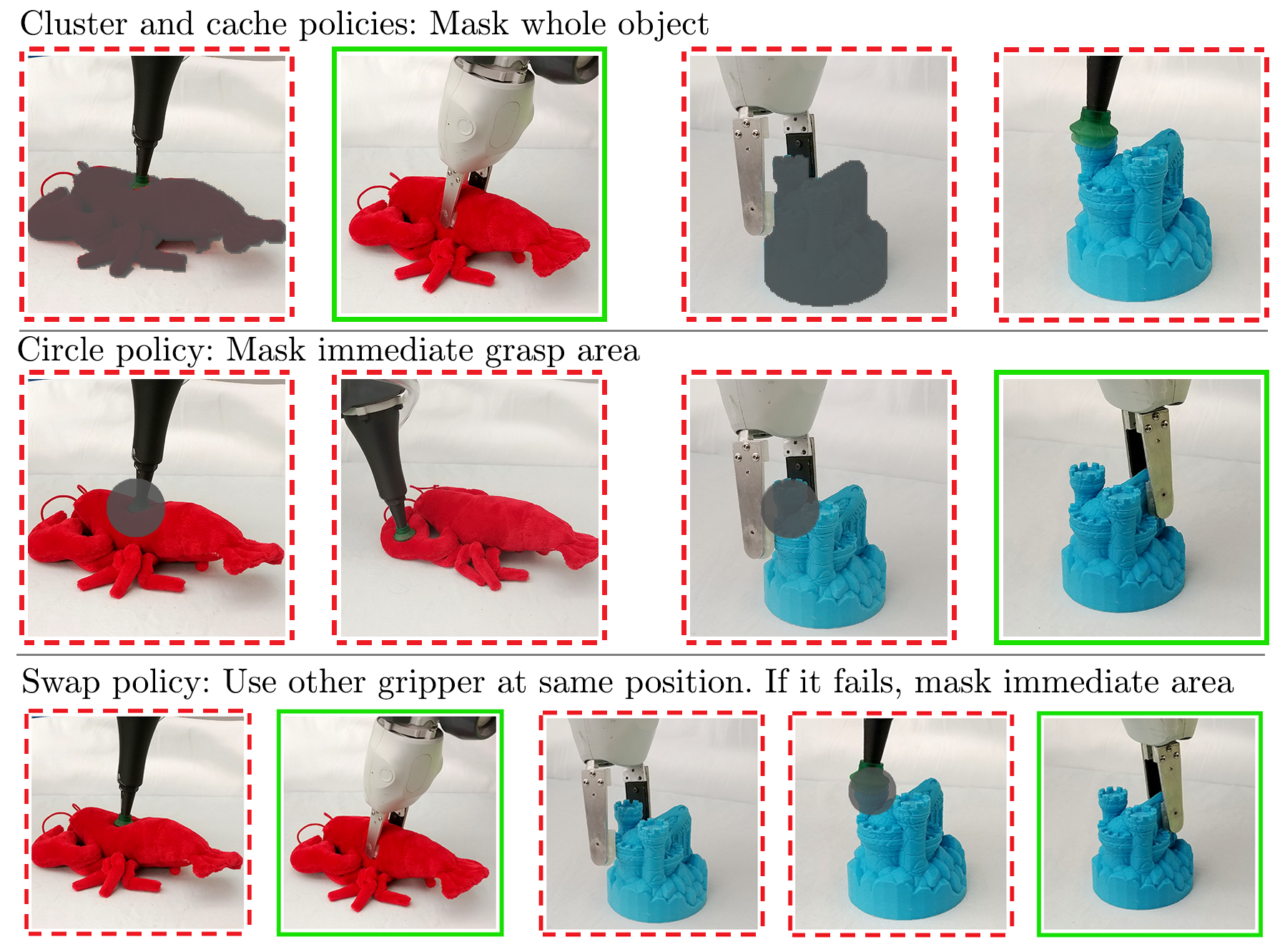Non-Markov Policies to Reduce Sequential Failures in Robot Bin Picking
Kate Sanders, Michael Danielczuk, Jeffrey Mahler, Ajay Tanwani, Ken Goldberg
IEEE 16th International Conference on Automation Science and Engineering (CASE), 2020.
[PDF]

Abstract
A new generation of automated bin picking systems using deep learning is evolving to support increasing demand for e-commerce. To accommodate a wide variety of products, many automated systems include multiple gripper types and/or tool changers. However, for some objects, sequential grasp failures are common: when a computed grasp fails to lift and remove the object, the bin is often left unchanged; as the sensor input is consistent, the system retries the same grasp over and over, resulting in a significant reduction in mean successful picks per hour (MPPH). Based on an empirical study of sequential failures, we characterize a class of “sequential failure objects” (SFOs) - objects prone to sequential failures based on a novel taxonomy. We then propose three non-Markov picking policies that incorporate memory of past failures to modify subsequent actions. Simulation experiments on SFO models and the EGAD dataset suggest that the non-Markov policies significantly outperform the Markov policy in terms of the sequential failure rate and MPPH. In physical experiments on 50 heaps of 12 SFOs the most effective Non-Markov policy increased MPPH over the Dex-Net Markov policy by 107%.
